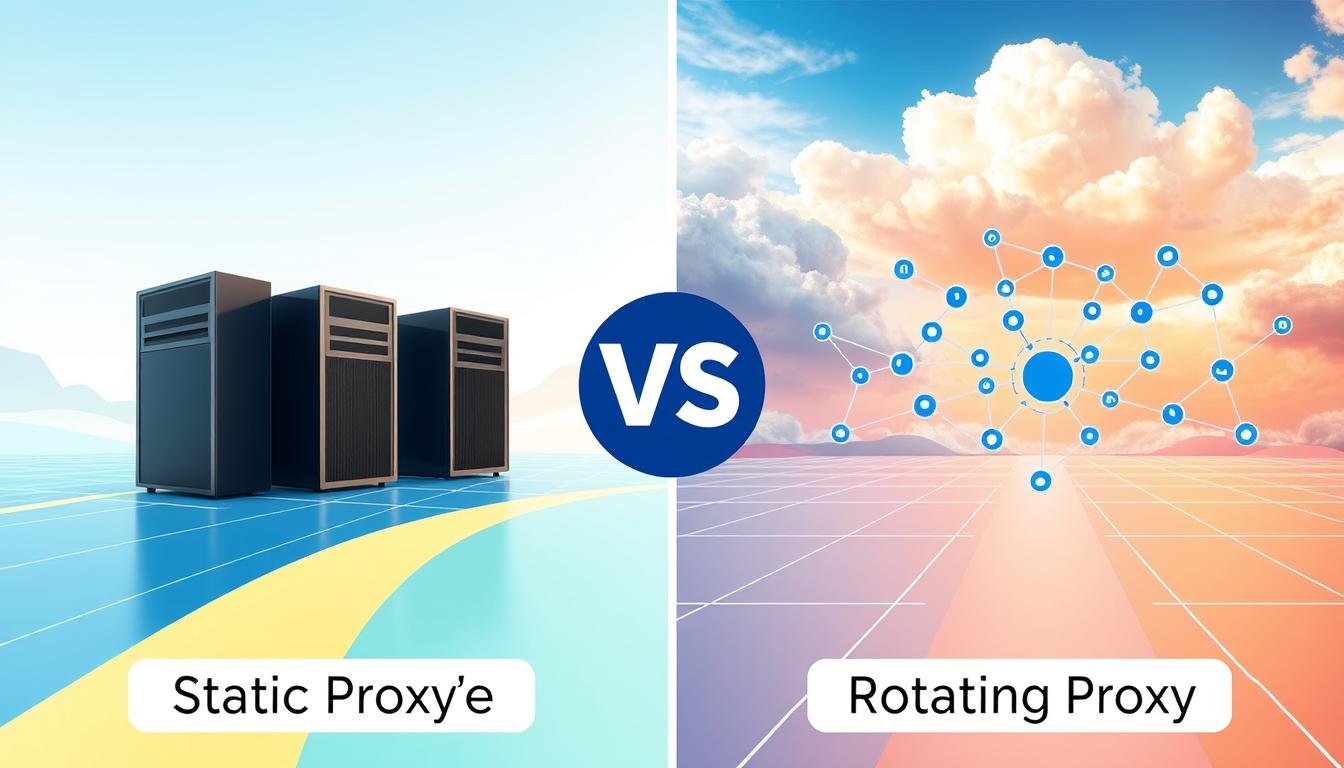FTC disclaimer: This post contains affiliate links and I will be compensated if you make a purchase after clicking on my link.
In today’s online landscape, protecting privacy and controlling access to content matters more than ever. The Best SOCKS5 Proxy Providers give individuals and businesses a flexible way to route traffic, hide real IPs, and manage regional access — all while preserving performance for browser sessions, automated tasks, and data collection.
Choosing a top socks5 proxy provider matters because the right proxy reduces blocking, speeds up web scraping and monitoring tasks, and keeps your browsing and data transfers secure. With a crowded market of residential, datacenter, and mobile proxy options, this guide helps you find the best socks5 options for enterprise, mid-range, and budget needs.
Key Takeaways
- Enterprise picks (Bright Data, Oxylabs) for scale, reliability, and broad IP pools
- Mid-range and specialty providers (Smartproxy/Decodo, NetNut, Infatica) for balanced performance and pricing
- Affordable and ethical options (DataImpulse, IPRoyal, IPBurger) plus setup tips and what to test before buying
Jump to the section you need — enterprise, mid-range, or budget — or keep reading for setup tips, pros and cons, and a quick comparison checklist to pick the right provider for your tasks.
Understanding SOCKS5 Proxies and Their Benefits
SOCKS5 proxies act as an intermediary between your device and the internet, routing traffic so your real IP address stays hidden and your sessions gain an extra layer of privacy. They’re a versatile option for users who need reliable, protocol-level proxying for a range of web tasks.
What Are SOCKS5 Proxies?
At a technical level, a SOCKS5 proxy forwards network packets using TCP and UDP transport protocols. Unlike HTTP proxies that operate at the application layer and can modify headers, SOCKS5 works at the transport layer — making it suitable for web browsing, file transfers, gaming, and P2P traffic where raw TCP/UDP connections matter. Simple flow: client → SOCKS5 proxy → target server.

Key Advantages of Using SOCKS5 Proxies
SOCKS5 proxies provide several practical benefits: improved anonymity by hiding your IP, flexible support for both TCP and UDP connections, and fewer protocol-level restrictions compared with HTTP proxies. That combination makes them a go-to choice for tasks where connection types and raw sockets matter.
Common real-world uses include:
- Ethical web scraping and data collection: rotate residential or datacenter proxies to gather public product or pricing data while minimizing blocks (always follow robots.txt and site terms).
- Geo-testing and streaming checks: access region-locked content or test localized web experiences from different IP locations.
- Gaming and P2P transfers: leverage UDP support for lower-latency connections where supported.
When choosing proxies, compare SOCKS5 vs http proxies vs VPNs: SOCKS5 is lighter and more flexible for mixed TCP/UDP traffic, HTTP proxies are optimized for web requests, and VPNs provide system-wide encrypted tunnels. For high-volume scraping or enterprise tasks, check options like residential proxies and datacenter proxies to match your needs for anonymity, performance, and cost.
How to Choose the Right SOCKS5 Proxy Provider
With many proxy providers on the market, choosing the right SOCKS5 provider comes down to matching technical capabilities and support to your specific tasks — scraping, account management, streaming checks, or enterprise monitoring. Below is a practical checklist and quick tests to help you evaluate candidates.
Essential Features to Look For
Use this compact checklist when evaluating a proxy provider — and run these checks during any trial period:
- Speed & reliability: Test latency and throughput to target sites. Look for consistent uptime and low packet loss — crucial for scraping and streaming.
- Security & authentication: Confirm support for secure authentication methods, credential rotation, and TLS where applicable to protect your data and accounts.
- IP pool size & diversity: Verify the number and type of IPs (residential, datacenter, mobile, ISP) and geographic distribution to meet your geo-targeting needs.
- Rotation & session control: Check if the provider offers sticky sessions, automatic rotation, and fine-grained control over IP change frequency.
- API & integrations: Ensure there’s API access, programmatic account management, and examples (curl, Python) for automation and integration into your workflow.
- Support & SLAs: Look for responsive support, clear SLAs or uptime guarantees, and fraud/abuse handling policies.
- Pricing & plans: Compare pricing models (bandwidth vs. IPs vs. concurrent connections) and any overage rules to predict total cost.

Common Use Cases for SOCKS5 Proxies
Match provider capabilities to your intended use. Examples:
- Web scraping & data collection — Rotate residential or datacenter proxies and test for blocking patterns on product pages and public APIs; always follow robots.txt and site terms to stay compliant.
- Social media & account management — Use geographically appropriate IPs and session persistence to reduce false-positive suspensions when running multiple accounts.
- Geo-testing & content verification — Validate localized content and regional streaming availability using proxies in the target locations.
Quick comparison checklist you can copy: test speed (ping & download), test target site access (HTTP status + content match), verify IP location and type, check rotation behavior (frequency and stickiness), confirm API and auth methods, and evaluate support response time.
Understanding your specific use case, doing short trials, and comparing providers on these measurable factors will help you pick a top-rated SOCKS5 proxy service that balances speed, reliability, and pricing for your needs.
The Best SOCKS5 Proxy Providers for Enterprise Solutions
For enterprise use, SOCKS5 proxy providers must deliver scale, predictable performance, and enterprise-grade support. Large teams and automated systems need providers that offer broad IP coverage, reliable rotation controls, and clear SLAs so data pipelines and monitoring tasks run uninterrupted.
Bright Data: Enterprise-Grade Proxy Infrastructure
Bright Data is a widely recognized socks5 proxy provider for large-scale operations. They combine extensive IP resources with advanced targeting and session controls to support complex scraping, market intelligence, and global monitoring workflows.
Key Features
- Extensive IP pool across residential, datacenter, and mobile ranges for broad geographic coverage
- Advanced rotation and targeting capabilities (country, city, ASN-level targeting)
- High-throughput data transfer optimized for large crawl jobs and API-style requests
- Enterprise security and compliance controls plus dedicated account support
Pricing Overview
Bright Data typically uses usage-based pricing (bandwidth or request-based tiers) and custom enterprise plans. For accurate pricing and volume discounts, contact sales or check their official pricing page — enterprise contracts often include SLAs and dedicated support options.
Pros and Cons
Pros: Massive IP coverage and targeting options, robust performance for large data tasks, enterprise support and SLAs.
Cons: Higher cost for large-scale use, more complex billing models that may require careful planning, and a steeper learning curve for fine-grained configuration.

Best for: large enterprises and teams that need global IP scale, fine-grained targeting, and dedicated support for sustained scraping and monitoring operations. For a production deployment, verify current IP counts, supported proxy types (residential, mobile, datacenter), and SLA details with Bright Data’s sales team.
Top Mid-Range SOCKS5 Proxy Services
If you need reliable performance without enterprise pricing, mid-range socks5 proxy providers strike a strong balance between speed, coverage, and cost. These services are ideal for small teams, agencies, and solo operators running web scraping jobs, account management, or localized testing.
Decodo (Smartproxy): Balanced Performance and Price
Decodo (marketed as Smartproxy in many markets) is a popular mid-range socks5 proxy service that blends a large IP footprint with straightforward management tools. It’s often chosen by users who need a mix of residential and datacenter proxies for varied scraping and testing tasks.
Key Features
- Global coverage: Wide distribution of IPs across countries and cities to support geo-targeted tasks.
- High-speed connections: Designed for moderate to heavy scraping and streaming checks — always measure latency to your target sites during trials.
- User-friendly dashboard: Easy account and proxy management with API access for automation.
- Proxy types: Offers both residential proxies and datacenter proxies so you can choose the right blend for anonymity vs. performance.
Pricing Overview
Decodo/Smartproxy typically offers tiered plans and pay-as-you-go options. Pricing models vary by bandwidth, number of concurrent connections, or proxy count — compare plans for best fit and watch for overage rules on heavy scraping jobs.
Pros and Cons
| Pros | Cons |
| Good balance of performance and cost | Limited deep customization for advanced users |
| Simple management and API access | Some users report occasional IP blacklisting on aggressive targets — test your workflow |
| Flexible pricing models and plans |
Best for: small teams and mid-sized scraping tasks where you need a reliable mix of residential and datacenter proxies without enterprise-level complexity. Example workflow: use rotating residential socks5 proxies for product-price monitoring and switch to datacenter socks5 proxies for bulk performance checks.
Reliable SOCKS5 Providers with Global Coverage
If you need wide geographic reach and dependable connections, ISP-backed socks5 proxies are often the best fit. Providers that partner with ISPs can offer stable, routable IPs that reduce the chance of blocks and deliver consistent throughput for large-scale tasks.
NetNut: ISP-Based Proxy Network
NetNut is a well-known provider that uses ISP proxies to deliver connectivity resembling residential traffic but with the performance characteristics enterprises expect. This ISP-based approach prioritizes reliability and geographic diversity across many markets.
Key Features
- Global coverage: Broad distribution of IPs across countries and regions to support geo-targeted access and testing.
- High-speed connections: ISP-sourced routing often yields stable throughput and lower latency compared with some P2P models — useful for heavy data transfers and real-time checks.
- Enhanced security: Enterprise-grade access controls and encryption options to protect credentials and data during proxy use.
Pricing Overview
Pricing for ISP proxies varies by provider and plan structure (bandwidth-based, pool-size, or request-based pricing). The table shown in source content is illustrative — always check NetNut’s official pricing and any published bandwidth tiers or enterprise options for up-to-date figures and available discounts.
| Plan | Price | Bandwidth |
| Basic | $50/month | 500 GB |
| Premium | $100/month | 1 TB |
| Enterprise | Custom Pricing | Unlimited |
Pros and Cons
Pros: Strong global coverage, stable ISP-backed connections, and suitable security controls.
Cons: ISP proxies tend to cost more than simple datacenter options; support responsiveness and SLA terms vary by plan.
Best for: teams needing reliable geo-targeted access and sustained throughput (e.g., price monitoring, large-scale verification, compliance testing). Before committing, request a trial or contact sales to verify current IP counts, regional availability, and support SLAs for your traffic levels.
Fast and Secure SOCKS5 Proxy Options
If speed and security are your priorities, some providers focus on architectures that deliver low-latency connections and robust protections. These fast socks5 proxy services work well for time-sensitive tasks like real-time monitoring, interactive sessions, and high-concurrency scraping when configured correctly.
Infatica: Peer-to-Peer Proxy Network
Infatica uses a peer-to-peer (P2P) style network that sources endpoints from a distributed pool of devices or nodes. In practice, that means requests are routed through a decentralized set of IPs rather than a single datacenter — which can boost reach and throughput but may introduce more variability in IP persistence and latency compared with strictly managed datacenter or ISP proxies.
Key Features
- Decentralized network: Uses distributed endpoints to reduce single points of failure and increase available IP diversity.
- High-speed connections: Optimized for throughput across many concurrent connections — good for large-scale crawls and parallel tasks.
- Enhanced security: Offers standard protections such as encrypted connections and credential-based authentication to safeguard sessions and data.
Pricing Overview
Infatica typically provides tiered pricing and flexible plans that scale with usage. Pricing varies by proxy type and traffic volume; review current plan details on the provider site and compare cost-per-GB or connection limits to estimate your total cost.
Pros and Cons
Pros: Strong throughput, large IP variety from distributed endpoints, and suitability for concurrent scraping and testing workflows.
Cons: IP persistence and latency can vary due to the decentralized model; some use cases that need consistent sticky IPs may require datacenter or ISP proxies instead.
Best for: teams and projects that prioritize raw speed and IP diversity for large-scale scraping or testing, and are prepared to manage potential variability in connection behavior.
Affordable SOC5 Proxy Solutions
If your priority is cost-effective access without sacrificing basic performance, look for providers that balance price and reliability. Affordable SOCKS5 proxy options are a good fit for freelancers, startups, and small teams running light-to-moderate scraping, testing, or account-management tasks.
DataImpulse: Cost-Effective Proxy Services
DataImpulse positions itself as an economical socks5 proxy provider with straightforward plans and easy integration. It’s aimed at users who need reliable connections for routine workflows without enterprise-level pricing.
Key Features
- High-speed connections: Designed to deliver steady throughput for concurrent tasks — always measure latency to your target endpoints during a trial.
- Global coverage: Servers in multiple regions let you access geo-restricted content and run region-specific tests.
- Easy integration: Simple setup for browsers, curl/CLI, and common automation tools plus API access for programmatic account and proxy management.
Pricing Overview
Below is an illustrative example of entry-level pricing — verify current figures on the provider’s pricing page (as prices and plans change over time):
| Pricing Plan | Price | Features |
| Basic | $9.99/month | 100 threads, 1 user (example) |
| Premium | $29.99/month | 500 threads, 5 users (example) |
| Enterprise | Custom pricing | Custom threads, users, and features |
Pros and Cons
Pros: Low entry price, predictable plans for small teams, and straightforward setup that’s friendly for non-specialists.
Cons: Lower-tier plans may have limited customization and concurrency caps; higher-volume scraping can become costly depending on pricing model and overage rules.
Best for: cost-conscious users who need reliable socks5 proxy connections for moderate use — testing, small-scale web scraping, or managing a few accounts. Before you buy, test a short trial to measure real-world speed, connection limits, and the effective cost per GB or per connection for your specific use case.
Specialized SOC5 Proxy Providers
Some projects require more than raw scale — they need transparent sourcing, strong privacy guarantees, or specialized address types. Specialized socks5 proxy providers focus on ethical sourcing, compliance, or niche proxy pools (residential, mobile) to meet those needs.
IPRoyal: Ethically Sourced Proxies
IPRoyal markets itself as a socks5 proxy provider that emphasizes ethical sourcing and transparent practices. That approach appeals to teams that prioritize compliance and want to avoid proxies tied to questionable sourcing methods.
Key Features
- Ethically sourced proxies: Providers that claim ethical sourcing typically mean endpoints are opt-in or come from contributors who consent to share bandwidth — look for provider documentation describing how addresses are collected and managed.
- Diverse proxy pool: A mix of residential and other proxy types offers flexibility for different tasks and reduces the chance of blocks on sensitive targets.
- Advanced security: Expect credential-based authentication, encryption options, and account controls to help secure sessions and manage access.
Pricing Overview
IPRoyal offers tiered pricing to cover individual users up to enterprise customers. Pricing and proxy counts vary by plan — check the provider site for current plan details and any limits on concurrent connections or address usage.
| Pricing Plan | Features | Price |
| Basic | 1,000 proxies, basic support | $50/month (example) |
| Premium | 5,000 proxies, priority support, advanced security | $150/month (example) |
| Enterprise | Custom proxies, dedicated support, advanced security | Custom Pricing |
Pros and Cons
- Pros: Focus on ethical sourcing and transparency, a varied proxy pool (including residential proxies), and security-focused features suitable for compliance-aware teams.
- Cons: Premium plans can be pricier than basic datacenter-only options; verify address counts, region coverage, and support SLAs before committing.
Best for: privacy-conscious teams and compliance-sensitive projects that need residential-style addresses and clear sourcing documentation. Always review the provider’s transparency statement and test a short trial to validate coverage, IP addresses, and support responsiveness.
Emerging SOC5 Proxy Services
The socks5 proxy landscape evolves quickly as new providers introduce fresh pricing, niche pools, and performance optimizations. Emerging services can offer compelling value, but treat them as experimental until you validate coverage, persistence, and support. Always compare newcomers to established providers on IP stability, support responsiveness, and pricing transparency before moving into production.
IPBurger: Newcomer with Promising Features
IPBurger is an emerging socks5 proxy provider that’s generating interest for its combination of competitive pricing and advertised performance. While it looks promising in socks5 proxy comparisons, run short functional tests (connectivity, latency, and content access) to confirm claims for your specific targets.
Key Features
- High-speed connections: Marketed for low-latency throughput suitable for interactive apps and many parallel requests — measure ping and throughput to your endpoints during a trial.
- Global coverage: Offers IP addresses across multiple countries to support geo-testing and regional access checks — verify the specific regions you need.
- Enhanced security: Uses credential-based authentication and encryption; confirm available auth methods and any session controls for your use case.
Pricing Overview
IPBurger lists tiered plans aimed at different user types. Treat listed prices as a starting point — confirm the provider’s current pricing, any bandwidth or connection caps, and refund/trial policies before purchasing.
| Plan | Price | Features |
| Basic | $9.99/month | 100 IPs, Standard Support (example) |
| Premium | $29.99/month | 500 IPs, Priority Support, Enhanced Security (example) |
| Enterprise | Custom Pricing | Custom IPs, Dedicated Support, Advanced Features |
Pros and Cons
- Pros: Attractive entry pricing, potentially fast connections, and growing global address coverage.
- Cons: As an emerging provider, documentation, long-term reliability, and support SLAs may be less established; some offerings lack a public free trial or clear refund policy.
Recommendation: If you’re considering IPBurger, run a short proof-of-concept: test access to your target sites, measure latency and success rates over several days, and confirm support response times. Then compare the results against established best socks5 proxy providers to decide if the cost/performance balance fits your needs.
How to Set Up and Use Your SOCKS5 Proxy
Using a SOCKS5 proxy routes selected traffic through a remote server so your real IP is hidden and connections gain an extra layer of privacy. Below are concise setup steps, quick examples for common platforms, and practical troubleshooting tips to get you up and running.
Basic Configuration Steps
General steps to configure any SOCKS5 connection:
| Step | Description |
| 1 | Obtain proxy details from your provider — server address, port, username/password (if required), and the proxy type (SOCKS5). |
| 2 | Configure your device or app to use the SOCKS5 proxy. Enter the server, port, and credentials where prompted. Choose SOCKS5 (not HTTP) as the proxy type. |
| 3 | Test the connection — verify the external IP, load target content, and measure latency to ensure acceptable performance. |
Platform-specific examples (non-sensitive):
- Windows (system-wide): Settings → Network & Internet → Proxy → Manual proxy setup — enter server:port and enable. Note: Windows often treats SOCKS differently; many users configure SOCKS5 per-app or via browser settings.
- Firefox (recommended for SOCKS5): Options → Network Settings → Manual proxy configuration → SOCKS Host: & port, choose SOCKS v5. Set “Proxy DNS when using SOCKS v5” to avoid DNS leaks.
- Chrome: Chrome uses the OS proxy; consider an extension or system-level SOCKS5 tunnel (e.g., with SSH: ssh -D 1080 user@host to create a local SOCKS5 proxy and point your browser at localhost:1080).
- Command line / curl: curl –socks5-hostname HOST:PORT –user user:pass https://example.com (use –socks5-hostname to route DNS through the proxy).
Troubleshooting Common Issues
Quick checklist if something goes wrong:
- Double-check server address, port, and credentials — a typo causes authentication failures.
- Verify SOCKS5 vs HTTP selection — choosing HTTP when you have a SOCKS5 proxy breaks connections.
- Test basic connectivity: ping the proxy host (if allowed) or run traceroute to determine where packets fail.
- Check DNS behavior: enable proxy DNS resolution (e.g., Firefox’s “Proxy DNS when using SOCKS v5”) to avoid DNS leaks.
- If speeds are slow, try another IP/region from your provider or switch proxy type (residential vs datacenter) depending on your use.
| Problem | Possible Fix |
| Authentication failed | Confirm username/password and that your account has active proxies or allowed IPs. |
| Timeouts / no connection | Check network, ensure port is open, try a different proxy endpoint or region. |
| High latency | Test different locations, switch proxy type (datacenter for lower latency), or reduce concurrency. |
| DNS leak | Enable proxy DNS resolution or configure system DNS to avoid leaking queries. |
Security and account tips: store credentials securely, rotate credentials when possible, and contact provider support if you see persistent failures or suspect rate limits. Test each provider with a short proof-of-concept to validate connections, browser behavior, and real-world performance before scaling up.
Conclusion: Choosing the Right SOCKS5 Proxy for Your Needs
Picking the right SOCKS5 proxy provider starts with your priorities: scale and SLAs for enterprise work, a balanced mix of performance and cost for mid-range use, or low-cost plans for light tasks. The best SOCKS5 proxy providers balance speed, reliability, and security while matching pricing and support to your expected traffic.
Quick matches: choose an enterprise-focused provider when you need large IP pools and dedicated support (e.g., Bright Data); pick a mid-range service for solid performance at a reasonable cost (e.g., Smartproxy/Decodo); and consider affordable or ethically sourced providers (e.g., DataImpulse, IPRoyal) if price or sourcing transparency matters more than massive scale.
Before you commit, run short trials or proofs-of-concept: test latency and throughput to your targets, verify IP persistence and rotation behavior, and check support responsiveness. Compare providers on pricing, available proxy types, and security controls to find the best socks5 option for your use case.








